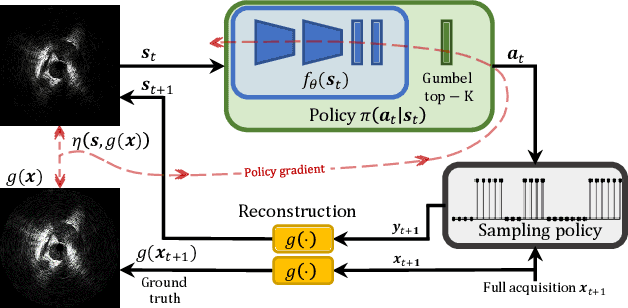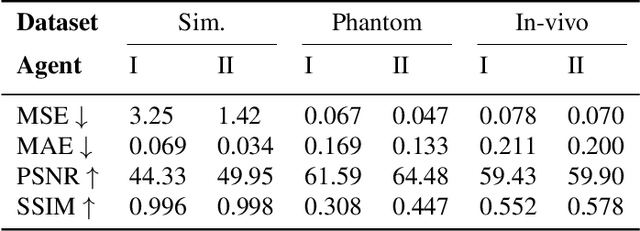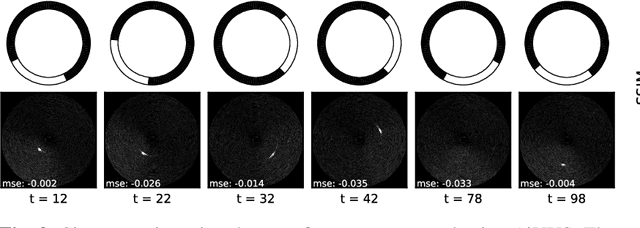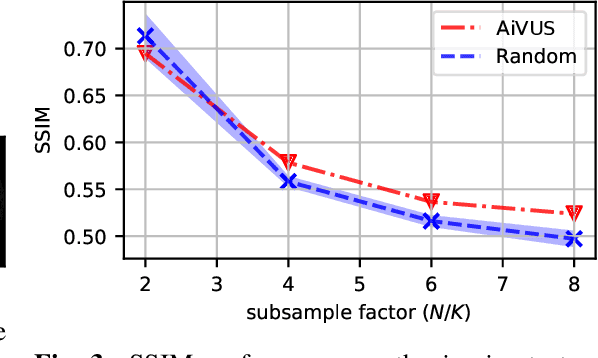Martin Pekař
Accelerated Intravascular Ultrasound Imaging using Deep Reinforcement Learning
Jan 24, 2022



Abstract:Intravascular ultrasound (IVUS) offers a unique perspective in the treatment of vascular diseases by creating a sequence of ultrasound-slices acquired from within the vessel. However, unlike conventional hand-held ultrasound, the thin catheter only provides room for a small number of physical channels for signal transfer from a transducer-array at the tip. For continued improvement of image quality and frame rate, we present the use of deep reinforcement learning to deal with the current physical information bottleneck. Valuable inspiration has come from the field of magnetic resonance imaging (MRI), where learned acquisition schemes have brought significant acceleration in image acquisition at competing image quality. To efficiently accelerate IVUS imaging, we propose a framework that utilizes deep reinforcement learning for an optimal adaptive acquisition policy on a per-frame basis enabled by actor-critic methods and Gumbel top-$K$ sampling.
* 5 pages, 3 figures, conference
 Add to Chrome
Add to Chrome Add to Firefox
Add to Firefox Add to Edge
Add to Edge